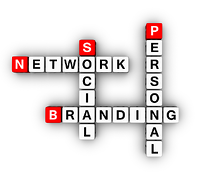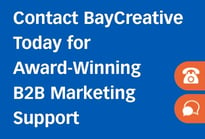Branding is one of those essential business bits and pieces that go into the whole of "success." In fact, understand branding, how it works, and how it can benefit your business is vital if you have any hope of growing your business.
 What Is Branding?
What Is Branding?
Branding is a process. As a business owner, you work to create a unique identity around your product or service. This identity is meant to be immediately recognizable as your company's, versus something being sold by your competitors.
To be successful, a branded product or service:
- Has a unique personality (California Raisins, Tony the Tiger)
- Evokes emotions (Coke, Apple)
- Creates trust (Paypal, Amazon)
An ultimately successful brand fills a spot that few ever manage: taking over the name of a generic product. Known as a "genericized trademark", examples of brand name takeovers include:
- Kleenex in actuality, it's a tissue, and many brands sell tissue. However, no matter what the actual brand is on the box, it's all Kleenex.
- Vice grips the proper name of the product is "locking pliers," but few actually call them that. What are they normally called instead? You guessed it. Vice-Grips.
- Band-Aids these helpful aids for binding wounds have a product name, and it is "adhesive strips".
Of course, there might be some issues with brand name takeovers, such as copyright infringement lawsuits and so on, but people definitely remember the name.
Brand Development: Learning the Ropes
So how do you do it? How do you build a branded company? Is it like slapping a "here's m'brand" sticker on a product label? Of course not. When building a brand, you have to consider some things, such as:
Your target market. What would interest them? What is it about your product/service that's going to entice them to buy?
The location of your target market. What is the culture and language like in their area? Will your product/service help them with location problems in some way? (Example: Gutter Monster for places with a lot of trees and rain)
The marketplace itself. How does your particular business sector work? Are there any oddities, compared to other sectors? Are there particular buying habits you'll need to keep in mind?
Once you've done your research and "learned the ropes" about your buyers, you can take the information you've gained, analyze it, and then move on to the next steps.
Creating Your Brand Name
For small businesses, the business owner normally creates the name, but that doesn't mean you can't get your marketing department to do it, or hire an ad agency. Creating a brand name isn't easy, though; it has to be done carefully. A few things to keep in mind:
- The long-term affect. Can you honestly say that your brand will always be doing exactly the same thing it's doing now? For example, consider "Toys R Us". What if they ever decide to sell something other than toys? Won't that be a little awkward? Make sure you choose a name that allows your business to grow.
- Memorable. It has to be easy to remember and easy to spell. LulzCatz may be cute and all, but there will be many people that won't know how to spell it. In a world of search engines, this isn't a good thing.
- Emotions. Words mean things, and those things can be good or bad, depending on the culture. When you come up with an idea, make sure you check the words together in several cultures. For example, you might decide "Dragon Lady's Deserts" is a good name, and in China, it might be. In the US, however, it will probably bring negative things to mind.
Creating Your Brand's Logo
A logo is just as important as the name, because it incorporates what you want your brand to represent. Color psychology goes into creating logos, as do shapes, sizes, impressions, emotions and about 50 other things. Because of the delicate and long-lasting nature of logos, professionals are normally hired.
You can find inspiration for logos all over the web, but here are a few sites:
Creating Your Brand's Personality
Just like the people in your business, your brand has a personality. However, you don't want that personality to be created by your consumers, and the only way to make sure you do the creating is to well, create. Ask yourself, "If my company were a person, what kind of person would it be?"
- Friendly?
- Compassionate?
- Caring?
- Professional?
- Cold?
- Calculating?
Once you decide how you want your brand's personality to be perceived, every marketing strategy should go into developing that image. Together with your new brand name and logo, your brand's personality will help you grow a successful business, bringing in sales and a larger customer base for your bottom line.

